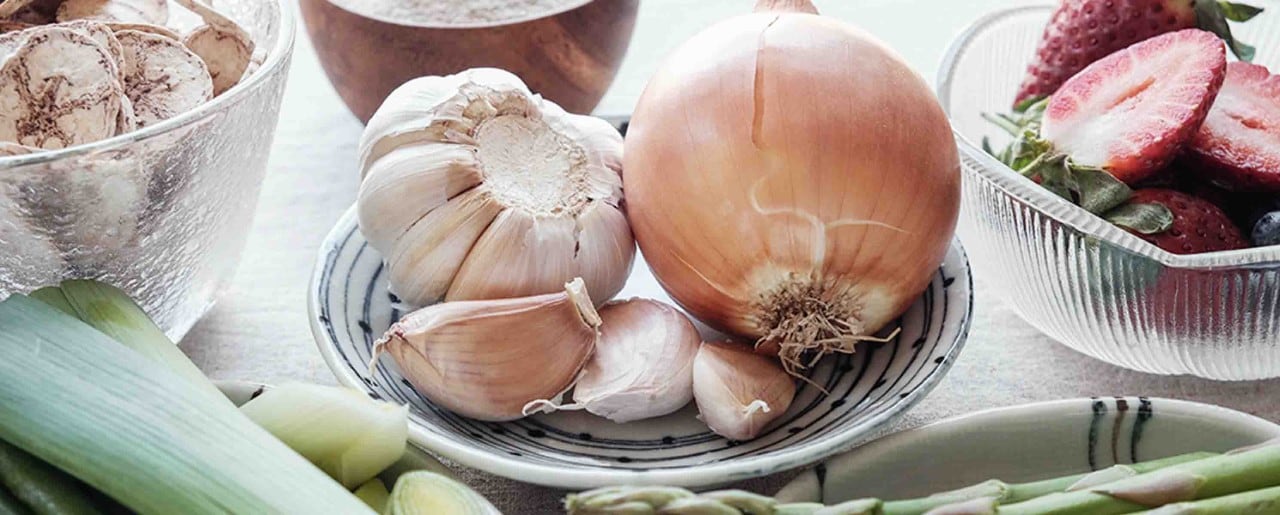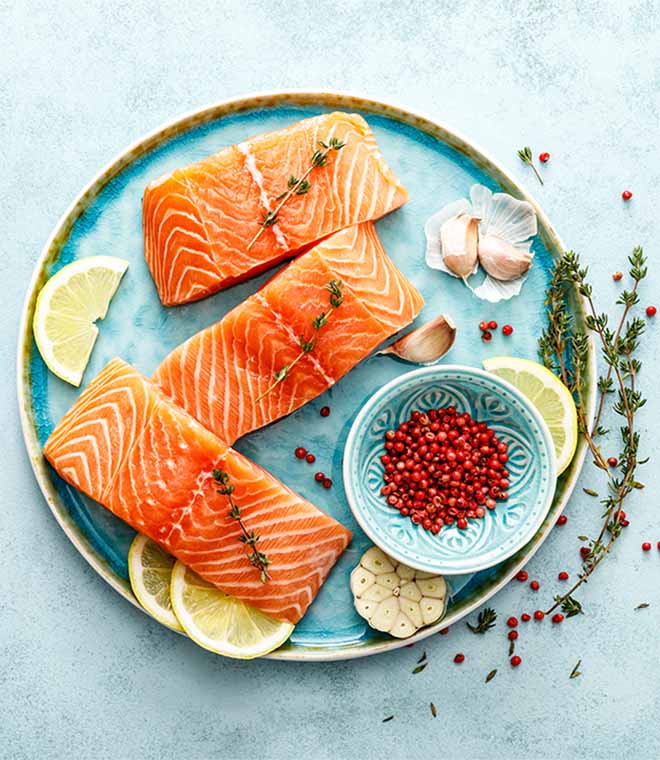Wellness
Prebiotics vs. probiotics: What's the difference?
By Danielle Butbul, MPH, RDN Oct 09, 2023 • 5 min
Many people are confused about the difference between prebiotics and probiotics—and who can blame them? These terms are easily confused because of their similarities, both in spelling and their relationship to gut health. If you're interested in understanding what makes one different from the other, you've come to the right place.
Comparing prebiotics to probiotics
The terms prebiotics and probiotics both relate to the beneficial microbes that live in our digestive tract, also known as the gut. Probiotics are live bacteria that can be beneficial when we consume them. While taking in varying amounts of different probiotic strains is linked to separate health benefits, in general, probiotics are considered "good" bacteria that may help counteract the presence of "bad" bacteria in the gut, which have the potential to make us sick.
Prebiotics, on the other hand, are nondigestible food ingredients that support the growth and function of healthy microorganisms that live in our gut—probiotics. Simply put, prebiotics feed probiotics, and together, prebiotics and probiotics can lead to a healthy population of beneficial bacteria in the gut, supporting digestive and overall health.
What foods contain probiotics?
Both prebiotics and probiotics are found naturally in foods. If you're looking to add more probiotics to your diet, consider adding these foods to your diet:
- Fermented dairy foods, such as yogurt, kefir and cheese
- Sauerkraut
- Kimchi
- Tempeh
- Miso
- Pickled vegetables
While many probiotic foods are fermented, it's important to note that not all fermented foods are probiotic.
What foods contain prebiotics?
Human breast milk is the first source of prebiotics for many people. After infancy, our major source of prebiotics in the diet is fiber-rich food. Since our digestive systems can't break down dietary fiber, it travels through the digestive tract until it reaches the colon (large intestine), where bacteria help to break it down by feeding on it. This means that some foods that are high in soluble fiber (such as whole grains, fruits and vegetables) are often rich in prebiotics. Below is a list of common plant foods that contain prebiotics:
- Apples
- Bananas
- Watermelon
- Legumes (chickpeas and kidney beans)
- Oats
- Wheat
- Rye
- Cashews and pistachios
- Onions
- Asparagus
- Garlic
- Jerusalem artichokes
Prebiotics and probiotics are also increasingly added to different foods. For example, prebiotics in the form of chicory root, inulin, gums and pectins can be added to cereal, bread and yogurt for extra nutritional value. For those who are looking to increase their intake but are unable to meet their needs through diet alone, prebiotics and probiotics are also available in dietary supplements.
Daily intake of prebiotics and probiotics
Ask your healthcare provider for guidance if you're looking to consume more prebiotics and probiotics through your diet or supplements. Consider starting with small amounts to slowly allow your gut to adapt, as too much of either can lead to gas and bloating. If your provider suggests a prebiotic supplement or a probiotic supplement, follow their advice for how much to take and when to take it. Since scientists are still learning about these nutrients, there are currently no guidelines for how much prebiotics and probiotics we should get in our diets every day.
Interest in prebiotics and probiotics has stemmed from a growing knowledge of the importance of gut microbiome—the complex network of bacteria that lives in our gut—and the effect this has on our overall health. The great news is that it's easy to increase your intake of both probiotics and prebiotics through a healthy diet and supplementation where necessary.
Clinically reviewed and updated October 2023.
Sources:
- https://isappscience.org/for-scientists/resources/probiotics/
- https://isappscience.org/for-scientists/resources/prebiotics/
- https://www.hsph.harvard.edu/nutritionsource/microbiome/
- https://isappscience.org/for-consumers/learn/faqs/#toggle-id-5
- https://www.mayoclinic.org/healthy-lifestyle/consumer-health/expert-answers/probiotics/faq-20058065
- https://www.chop.edu/health-resources/food-medicine-prebiotic-foods




